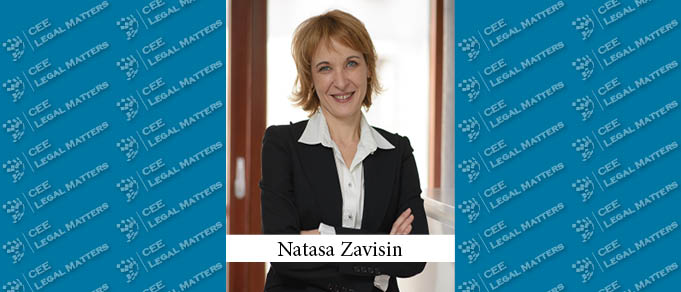I started practicing law in the mid-1990s, during a turbulent period in Serbia’s recent history. Corporate law, however, really took off in 2001 when the country opened its doors, after a full decade of isolation. Even then, it was unlike other Eastern European countries – instead of a stampede by major global law firms opening local offices in the hope of landing big privatization deals, only a few regional outfits sauntered into town to test the waters of the newly accessible Serbian legal market.
As anywhere else, corporate lawyering is intricately linked to the ebb and flow of the country’s economic fortunes, and the economy has changed rapidly over the past 20 years; the country transitioned from a freshly discovered frontier market full of legal landmines to one with relative stability that is on the path to EU accession. In the first decade of this century, foreign investors were mostly Western companies, and they invested a lot of time and resources into receiving detailed legal advice before making a move. Orders of magnitude were also different – the value of some of the largest privatizations back then would barely cover the price of a mid-sized office building in today’s Belgrade. For corporate lawyers, those were good times – things moved at a pedestrian pace (it was not uncommon to have weeks to draft a transaction agreement!) and clients were willing to pay for what now seems mundane advice (I still remember formal legal opinions on directors’ powers of representation and reviews of corporate bodies of Serbian LLCs).
Things became more feverish in the run up to the Great Recession of 2008 and transactional lawyers came under increasing pressure to turn documents around quickly and drag deals over the line. This mirrored the changing structure of the clients, as we saw fewer and fewer strategic investors and more private equity and opportunistic funds, along with a mixed bag of other groups. Suddenly, speed of response and succinct, to-the-point advice were the most sought-after qualities in a corporate lawyer.
As Serbia emerged from the Great Recession, the changes in investor structure accelerated – we started seeing fewer Western strategic investors in traditional sectors, more regional private equity-style players, and an influx of Middle- and Far-Eastern investors, the latter especially in the infrastructure sphere. Fast forward to today: The local IT industry is in the midst of a boom and there is a wave of Serbian-bred entrepreneurs in old economy sectors who started out decades ago, survived and thrived in the market economy, and are now looking to unload their businesses and cash-out – a big driver in the lower and mid-market M&A segment. Burgeoning mid-market activity fueled by exits of original founders has resulted in the emergence of law firms specializing in providing a one-stop shop service to mostly individual sellers, in what are usually the deals of their lifetimes. We are also witnessing a rise in large global deals involving acquirers who mop-up Serbian affiliates of the target, almost as an afterthought. Requests for super high-level legal diligence reports of local affiliates with a 48-hour turnaround have become commonplace.
In parallel with the economic changes, Serbia’s path to EU accession has thrown up a specific set of problems – a plethora of new laws and regulations have been introduced, with far too little investment in training, implementation, and compliance. In developed countries, the rollout of new regulations is accompanied by significant investment in training and compliance, creating a boom for lawyers and other consultants. This is simply not the case in Serbia, where public entities and many businesses are reluctant to spend big on professional fees – leaving Serbian lawyers with a corpus of EU-style worded rules but with little understanding of what they mean and how they should be properly implemented, leading to often confusing decisional practice and red tape.
In keeping with all of this, there have been seismic shifts in corporate lawyering since I started – long gone is the time of academic deliberation and a highbrow approach to legal advice. What clients are looking for (and are willing to pay for) now is first and foremost a “nothing-is-impossible” attitude – a no-nonsense, nimble team of lawyers capable of drafting high-quality documents in record time, while filtering essential information from the noise created by our ever-evolving legal environment. Advising on the content of the law is these days pretty much a non-billable activity, save maybe in certain highly specialized areas. Knowledge of the law and practice is a given, and success depends on how fast and smooth one can wrap-up a local deal in keeping with Western drafting standards.
By Natasa Zavisin, Founding Partner, Zavisin Semiz & Partneri
This Article was originally published in Issue 8.3 of the CEE Legal Matters Magazine. If you would like to receive a hard copy of the magazine, you can subscribe here.

















